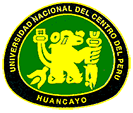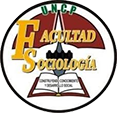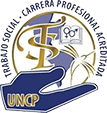The role of social skills in leadership competencies on university students from psychology and engineering faculties
DOI:
https://doi.org/10.26490/uncp.sl.2021.5.2.811Keywords:
program, social skills, leadershipAbstract
One of the pending issues in the theoretical framework of academic well-being is the development of leadership in students. By the way, various aspects of leaders have been highlighted, the exercise of social skills being one of the most appearing in the literature in this regard. It’s important to explore it on university student’s population. This research established the relation between soft skills and leadership levels in 132 psychology and engineering students in the city of Huancayo. On the results, linear regression model showed the significant effect of social skills on the variability of student leadership. (R² = 551), in the same way, comparative statistics were carried out to determine the relationship effect that social skills have on total leadership (F = 34.765; Sig. = .000 eta = .525) as well as on the dimensions of the leadership. These results allow us to determine the positive effect that the development of soft skills had on leadership traits in psychology and engineering students from the city of Huancayo - Peru. These are considered a contribution to the development of strategies and academic leadership.
Keywords: program; social skills; leadership.
References
Aguilar, V., Burgos, A., Argueta, M., Linares, D. y Marroquin, W. (2015). Liderazgo estudiantil y cuestionario de liderazgo estudiantil. Universidad de Oriente.
Akville, V., Aurelija, Z. y Vilma, Z. (2018). Charisma as a phenomenon in social work. Vocational training: Research and Realities, 29(1), 58-69. https://doi.org/10.2478/vtrr-2018-0005
Bass, B. (1998). The ethics of transformational leadership. Ethics, the Heart of Leaders, 3(3), 169-192. https://doi.org/10.15209/jbsge.v3i3.139
Bass, B. y Avolio, B. (2003). Predicting unit performance by assessing transformational. Journal of Applied Psycology, 82(8) 207-218. https://doi.org/10.1037/0021-9010.88.2.207
Benzer, A. (2012). Teachers opinion about the use of body language. Education, 132(3), 467-473. https://www.researchgate.net/profile/Ahmet-Benzer/publication/346027199_Teachers%27_opinions_about_the_use_of_body/links/5fb6c9f0a6fdcc6cc64be7f1/Teachers-opinions-about-the-use-of-body.pdf
Bush, T. (2007). Educational leadership and management: Theory, policy and practice of education . South African journal of education, 27(3), 391-406. Recuperado de: https://wrap.warwick.ac.uk/426/
Caballo, V. (1987). Teoría, evaluación y entrenamiento de las habilidades sociales. Promolibro.
Caballo, V. (2009). Manual de evaluación y entrenamiento de las habilidades sociales (5ta. ed.). Siglo XXI.
Cárdenas, C. y Duarte, C. (2016). Proxémica, Kinésica y Antropología. Apuntes sobre simulación etnográfica, cuerpo y espacio en el marco del conflicto armado colombiano. Antípoda, (25), 33-59. https://doi.org/10.7440/antipoda25.2016.02
Cárdenas, J. (2016). Construcción de instrumento para medir el liderazgo en estudiantes de secundaria [Tesis de pregrado. Pontificia Universidad Católica del Perú]. Repositorio institucional PUCP]. http://tesis.pucp.edu.pe/repositorio/handle/20.500.12404/8463
Dextre, H., Susana, J., García, L. y Yessica, C. (2017). Programa "yo con nueva actitud" basado en la Teoría de Bandura para fortalecer las habilidades sociales en los niños y niñas de segundo grado de Educacion Primaria de la Institucion Educativa "Augusto Salazar Bondy" de Nuevo Chimbote, 2015. [Tesis de pregrado, Universidad Nacional del Santa]. Repositorio institucional UNS. http://repositorio.uns.edu.pe/handle/UNS/3005
Elliot, S. y Gresham, F. (2008). SSiS: Social Skills Improvement System: Intervention Guide. Pearson.
Gadzhiyeva, N. y Sager, K. (2017). Maximizing the persuasiveness of a salesperson: An exploratory study of the effects of nonverbal immediacy and language power on the extent of persuasion. Journal of Work and Organizational Psychology, (33), 83-93. https://doi.org/10.1016/j.rpto.2017.03.001
Gismero, E. (1996). Manual de escala de Habilidades Sociales. Madrid: Universidad Pontificia Comillas.
Gumus, S., Esen, M., Sukru, M. y Gumus, E. (2016). A systematic review of studies on leadership models in educational research from 1980 to 2014. Educational management admnistration and leadership, 46(1), 25-48. https://doi.org/10.1177/1741143216659296
Hallinger, P. (2003). Leading educational change: Reflections on the practice of instructional and transformational. Cambridge Journal of Education, 33(3), 329-352. https://doi.org/10.1080/0305764032000122005
Hosokawa, R. y Katsura, T. (2017). A longitudinal study of socioeconomic status, family processes, and child adjustment from preschool until early elementary school: the role of social competence. Child y Adolescent Psychiatry y Mental Health, 11(63). https://doi.org/10.1186/s13034-017-0206-z
Keow, T., Huwaina, S. y Kanokorn, S. (2015). Soft Skills of leaders and school improvement in high performing schools. Procedia-Social and behavioural sciences, (191), 2127-2131. https://doi.org/10.1016/j.sbspro.2015.04.652
Khan, N. (2017). Adaptive or transactional leadership in current higher education: A brief Comparison. International review of research in open and distributed learning, 18(3), 179-183. https://doi.org/10.19173/irrodl.v18i3.3294
Lo, Y., Adamson, A. y Lam, J. (2012). Curriculum leadership in schools. Curriculum Change, 231-254. https://doi.org/10.5790/hongkong/9789888139026.003.0001
Mafra, H. (2015). Development of learning and social skills in children with learning disabilities: an educational intervention program. Procedia Social andBehavioral Sciences, (209), 221.228. https://doi.org/10.1016/j.sbspro.2015.11.220
Mantilla, B., Hakspiel, M., Guerrero, N., Niño, M. L.,Mantilla, L. y Cardenas, M. (2016). Efectividad del proceso de formación de escolares de 32 colegios públicos en habilidades psicosociales y hábitos saludables en Engativá-Bogotá D.C. Aquichan,16 (4) 462-472. https://doi.org/10.5294/aqui.2016.16.4.5.
Matson, J. (2017). Handbook of Social Behavior and Skills in Children. Autism and Child Psychopathology. Series Springer.
Nader, M., y Sanchez, E. (2010). Estudio comparativo de los valores de líderes trasnformacionales y transaccionales civiles y militares. Anales de psicología, 26(1) 72-79. https://revistas.um.es/analesps/article/view/91991
OECD. (2015). Skills for Social Progress: The Power of Social and Emotional Skills. OECD.
Prentice, W. (2004). Undestanding Leadership. Harvard Business Review, 82(1) 102-109. http://psgleadership.scripts.mit.edu/2011IAP/pdf/1_required_reading/Understanding%20Leadership.pdf
Pulido, F. y Herrera F. (2016). Predictores del miedo y las habilidades sociales en adolescentes del contexto pluricultural de ceuta. Acción Psicológica, 13(1) 179-191. https://doi.org/10.5944/ap.13.1.15560
Punset, E. (2014). El mundo en tus manos. Destino.
Riggio, R. y Salinas, C. (2003). The role of social and communication skills in leader emergence and effectiveness. Group Dynamics theory research and practice, 7 (2) 83-103. https://doi.org/10.1037/1089-2699.7.2.83
Rios, V. (2009). Entrenamiento de habilidades y competencias en las organizaciones. Publimass.
Rojas, C., Guadalupe, M., Romero, M. y Sanchez, T. (2015). Relación entre funciones ejecutivas y habilidades sociales en adolescentes: un estudio piloto. Revista Intercontinental de Psicología y Educación, 17(2), 167-183. https://www.redalyc.org/articulo.oa?id=80247939009
Tenorio, J. (2016). Programa triunfadores y habilidades sociales en estudiantes de psicología e ingeniería en la ciudad de Huancayo [Tesis de Maestría, Universidad Nacional del Centro del Perú]. Repositorio institucional UNCP. http://repositorio.uncp.edu.pe/handle/20.500.12894/4481
Downloads
Published
Issue
Section
License
Copyright (c) 2021 Juan Tenorio Romero

This work is licensed under a Creative Commons Attribution 4.0 International License.

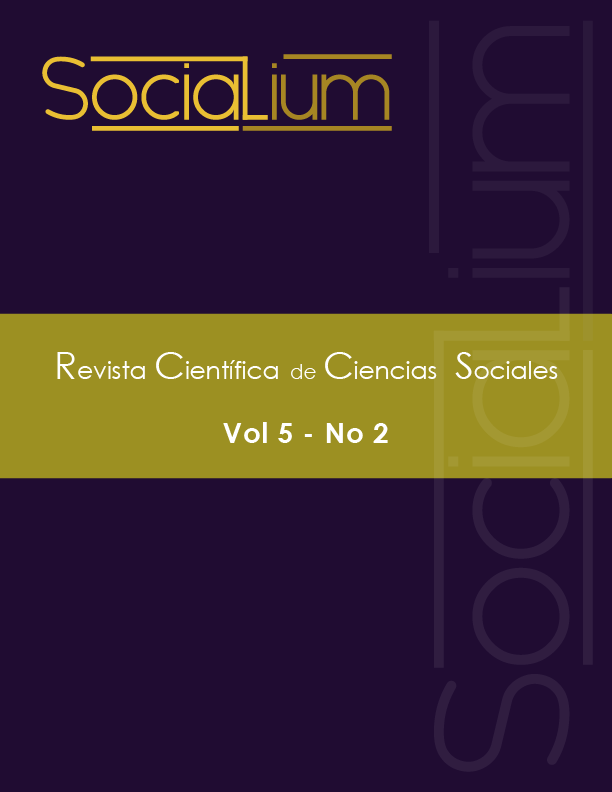

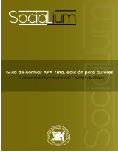




.jpg)










